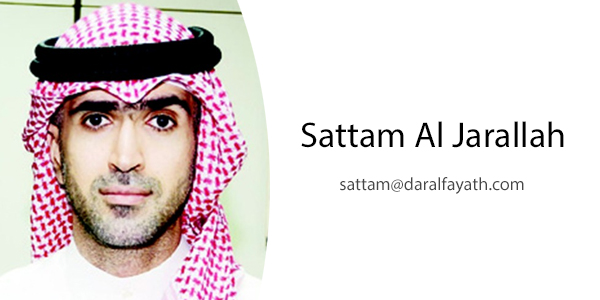02/06/2020
02/06/2020
In the government’s plan to return to normal life, there are many oddities that can only be serious in Indian and Turkish films and serials, because they are like a drama in which there are many surprises that only occur to the imagination of a fictional writer and director who loves contradictions,” columnist Sattam Ahmad Al- Jarallah wrote for Al-Seyassah daily.

In this plan, they opened the industrial areas, restaurants, and markets, and isolated the workers and employees who live and work in these areas, as if those who would work in these areas are residents of Abdullah Al-Salem, Yarmouk, Keifan, and Khaldiya, and they are not in Hawalli, Al Farwaniya, Maidan Hawalli, Khaitan and other isolated areas.
In all the stages of the current crisis, the government sought to support the private sector, or so it said to the people, but at the same time it appeared the government was committed to what one poet wrote ‘He threw him into the sea and asked him not to get wet’
It is as if the government is not aware of the negative dimensions of the private sector due to random and unstudied decisions, and does not know that it depends entirely on the workers residing in these areas, and that realistic solutions to the return of normalcy require farsighted reading, and not launching plans that cannot be applied even in Indian movies.
This fact shows us the extent of the confusion in the decisions taken to address the coronavirus crisis from the beginning, and how the matter turned into nearfailed tests, and this means that the solution to other files will not be better, but rather there will be more confusion, especially as we begin to feel the heat of the electoral atmosphere and the pursuit of deputies to choose more slogans and populist proposals that will be subject to the current government because they do not want to appear weak in the coming months.
This will lead to more corruption, which does not benefit with the referral to anti-corruption authority (Nazaha) as long as there are those who ‘toy’ with tenders and procedures on certain sizes, not in the higher interests of the nation.
We started in Kuwait with a partial curfew and isolation of some areas, but this did not lead to a reduction in the number of infections, then we moved to the total ban, so the corona infections rose and the number of deaths increased, despite the total closure of some sectors, and random checks that were conducted.
It is natural that the proportions of positive tests are high because the principle of ‘herd immunity’ is, unfortunately, a misnomer. It is more correct to say societal immunity. What is important is that this principle raises the number of patients and does not reduce it, and we have now reached an innovative plan that means the country’s closure remains around three months or more, which means more economic losses, especially in the private sector.
All of this makes us ask: Is it really required to address this crisis, or is what is going on serves some stakeholders? The second question is: ‘If these are the necessary solutions, when and how will the government impose a total ban on the corrupt and recover from them what they have taken?


